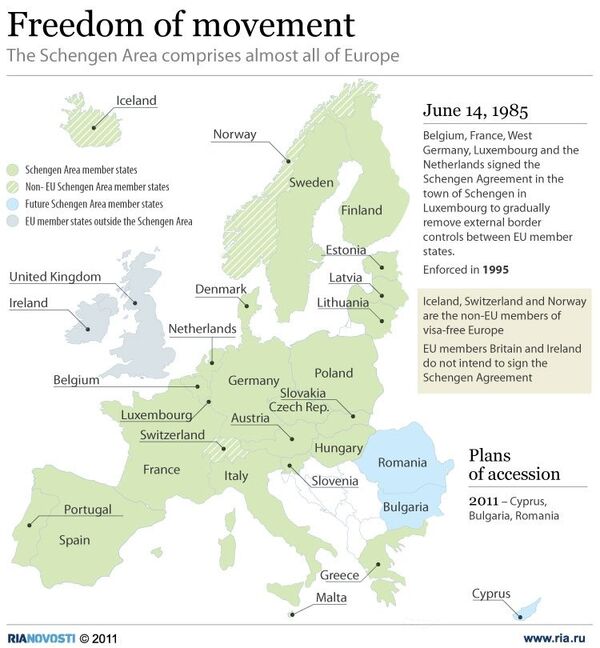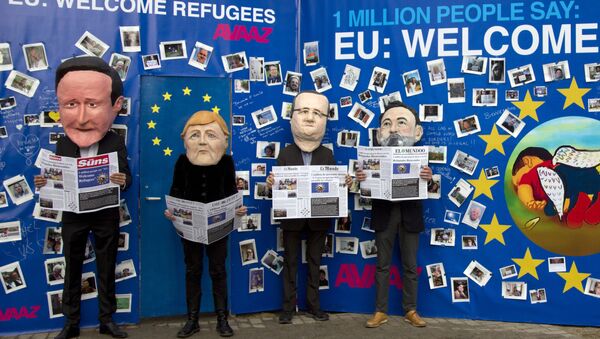The assaults in Cologne — perpetrated by people of North African or Arab appearance — cause outrage in Germany, where there is growing anger at Chancellor Angela Merkel's failure to control the refugee crisis or put a cap on the numbers the country is prepared to accept in 2016.
Writing on his Twitter account, he said:
EU law = once Cologne sex abusers get citizenship they can fly to UK & there's nothing we can do. #VoteLeave = safer choice
— odysseanproject (@odysseanproject) 15 января 2016
A friend of Cummings added: "The basic point is once someone has an EU passport they can come here including if they are convicted criminals, because of free movement and of course nothing Cameron is negotiating will stop that," according to the Daily Telegraph newspaper.
— odysseanproject (@odysseanproject) January 16, 2016
In a world where we are moving together, Britain is better off and safer inside than outside the EU.
— Michael Grace (@_mikatron) December 16, 2015
His opinion mirrors growing public opinion in the UK that the refugee crisis has exposed deep divisions within the EU over the migrant crisis which has exposed the problem of open borders under the Schengen agreement — a central pillar of the EU being the freedom of movement of people.
Terror Threats
The UK did not sign up to the Schengen agreement, which many people fee is a move vindicated by the current crisis which has seen the biggest mass movement of people through Europe since the Second World War.

It has also precipitated deep divisions within Europe as Croatia, Slovakia, Hungary, Austria, Italy, Denmark and Sweden all among the countries introducing some sort of border control to stem the tide of refugees.
British public opinion was further galvanized following the November 13 Paris attacks, after which it was discovered that all the attackers had been able to move freely across Europe without being detected — with many of the already identified by intelligence agencies as having been radicalized.
With migrant flows expected to surge again by April or May and Cameron hoping to clinch a deal on reforms at the February European Council meeting, the referendum could call it in June. Yet with terrorism, the refugee crisis and the Cologne attacks, Cameron is becoming worried that public opinion on remaining within the EU is slipping away.




